
Utila: The Jewel of the Bay Islands
Nestled in the Caribbean Sea, Utila is a small island off the coast of Honduras. Known for its stunning coral reefs and vibrant marine life, it is a diver's paradise. Utila is part of the Bay Islands and offers a unique blend of natural beauty, rich culture, and laid-back atmosphere. The island is famous for its affordable diving courses, making it a popular destination for budget travelers and diving enthusiasts alike. The waters surrounding Utila are home to the Mesoamerican Barrier Reef, the second-largest coral reef system in the world. Here, you can explore underwater caves, swim with whale sharks, and marvel at the colorful coral formations. Aside from diving, Utila boasts beautiful beaches, lush tropical forests, and a lively nightlife. The main town, Utila Town, is a charming place with colorful buildings, friendly locals, and a variety of restaurants and bars. Whether you're looking to relax on the beach, explore the island's natural wonders, or immerse yourself in the local culture, Utila offers something for everyone.
Local tips in Utila
- Best time to visit is from March to May when the weather is dry and ideal for diving.
- Local currency is the Honduran Lempira, but US Dollars are widely accepted.
- Bring insect repellent as mosquitoes can be prevalent, especially during the rainy season.
- Utila is known for its affordable diving courses, so consider getting certified here.
- Explore the island by renting a scooter or bicycle for a more intimate experience.
Utila: The Jewel of the Bay Islands
Nestled in the Caribbean Sea, Utila is a small island off the coast of Honduras. Known for its stunning coral reefs and vibrant marine life, it is a diver's paradise. Utila is part of the Bay Islands and offers a unique blend of natural beauty, rich culture, and laid-back atmosphere. The island is famous for its affordable diving courses, making it a popular destination for budget travelers and diving enthusiasts alike. The waters surrounding Utila are home to the Mesoamerican Barrier Reef, the second-largest coral reef system in the world. Here, you can explore underwater caves, swim with whale sharks, and marvel at the colorful coral formations. Aside from diving, Utila boasts beautiful beaches, lush tropical forests, and a lively nightlife. The main town, Utila Town, is a charming place with colorful buildings, friendly locals, and a variety of restaurants and bars. Whether you're looking to relax on the beach, explore the island's natural wonders, or immerse yourself in the local culture, Utila offers something for everyone.
When is the best time to go to Utila?
Iconic landmarks you can’t miss
Dream Ferries
Experience the stunning beauty of the Bay Islands with Dream Ferries, your gateway to unforgettable adventures on the Caribbean sea.
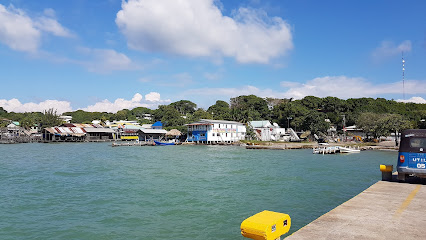
Bando Beach
Discover Bando Beach in Utila: A lively bar and grill with stunning views, refreshing drinks, and the ultimate beach experience in the Caribbean.
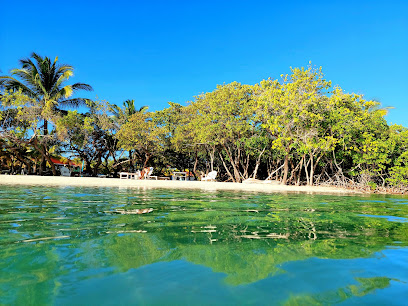
Neptunes at Coral Beach Village
Experience the best of Caribbean dining at Neptunes, where fresh seafood meets breathtaking beach views in the heart of Utila.
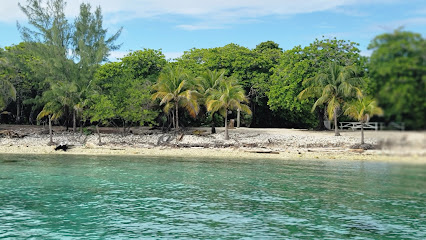
Utila Dive Centre
Immerse yourself in the vibrant underwater world with Utila Dive Centre, the ultimate destination for scuba diving in the Bay Islands of Honduras.
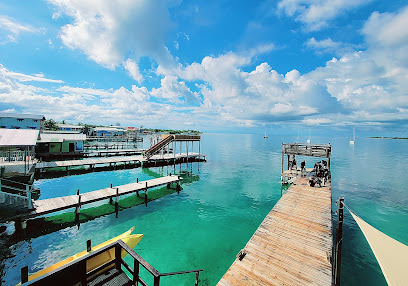
Huffy Utila Beach
Discover adventure and relaxation at Huffy Utila Beach, your go-to destination for water sports and scenic views in Utila's vibrant atmosphere.
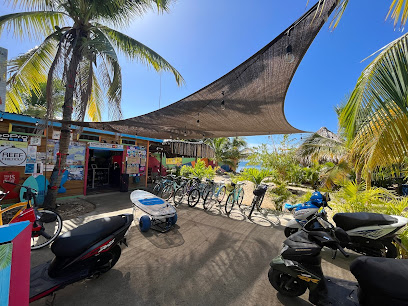
Tranquila Bar
Experience the vibrant nightlife and tropical flavors at Tranquila Bar, the heart of Utila's social scene.
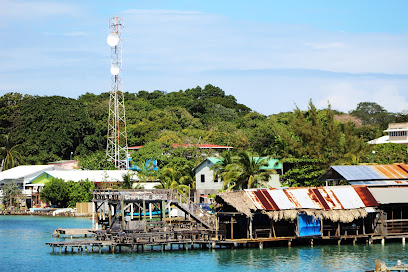
Jade Seahorse Hotel - Utila, Honduras
Discover tranquility and adventure at Jade Seahorse Hotel in Utila, where lush gardens meet vibrant local culture and stunning Caribbean scenery.
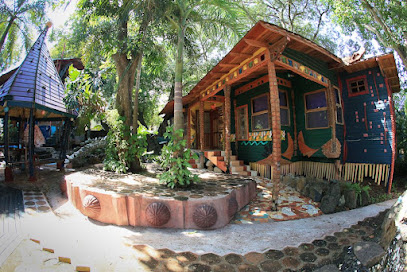
Mermaids
Experience the flavors of Utila at Mermaids, a cozy restaurant offering fresh seafood and local delicacies in a vibrant atmosphere.
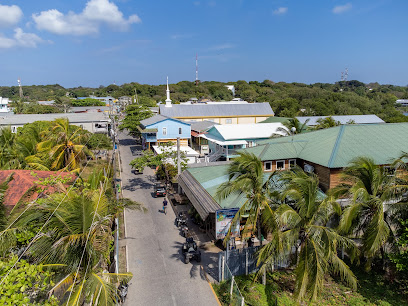
Alton's Dive Center
Experience unforgettable diving adventures at Alton's Dive Center in Utila, where expert instructors guide you through the vibrant underwater world of the Bay Islands.
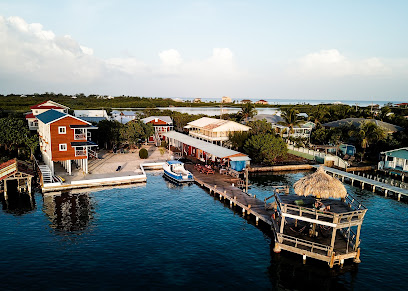
Paradise Divers
Explore the vibrant underwater world of Utila with Paradise Divers, your gateway to unforgettable diving experiences in Honduras' Caribbean paradise.
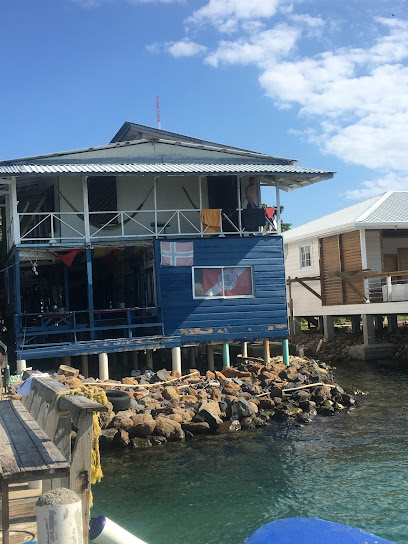
Mister Buddha
Experience a fusion of flavors at Mister Buddha in Sandy Bay, Utila, where every dish is crafted to delight your palate.
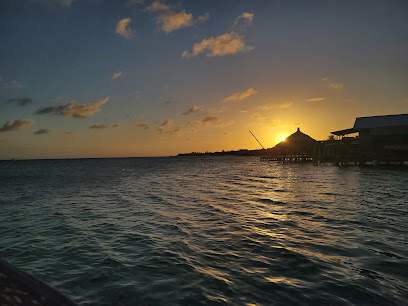
Mango Inn Bar & Grill
Discover the vibrant culinary scene at Mango Inn Bar & Grill in Utila, where fresh local flavors meet warm island hospitality.
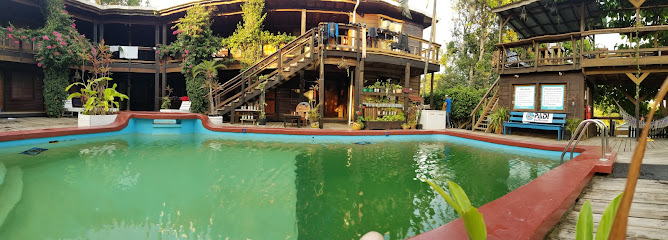
Sea Eye I
Discover a slice of paradise at Sea Eye I, an idyllic hotel in Utila, offering relaxation, adventure, and stunning Caribbean views.
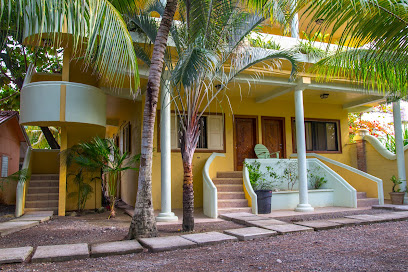
Che Pancho
Discover the vibrant culinary scene at Che Pancho in Utila, where local flavors and international cuisine create unforgettable dining experiences.
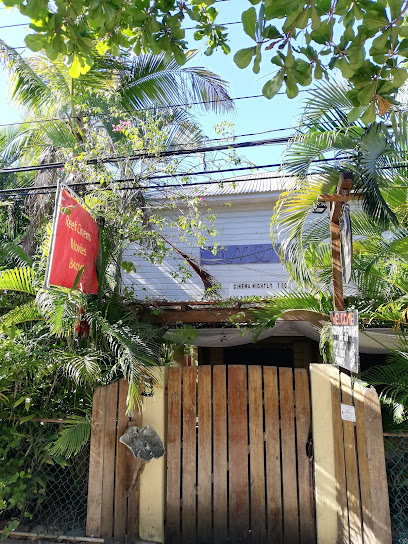
Coral View Beach Resort
Experience paradise at Coral View Beach Resort in Utila, where relaxation meets adventure in the heart of the Bay Islands.

Unmissable attractions to see
Berth 1 - Port of Roatan
Experience the vibrant spirit of Roatan at Berth 1, the island's bustling port filled with shops, local flavors, and stunning coastal views.
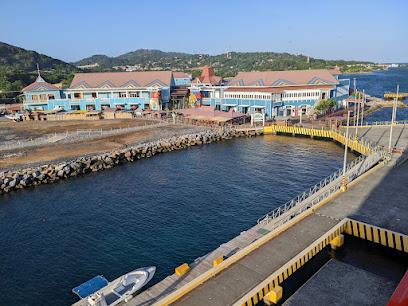
Roatán
Explore Roatán Island, a gem in the Bay Islands, known for its stunning beaches, vibrant marine life, and rich cultural experiences.

Mayan Eden
Explore the enchanting Mayan Eden in Roatan, a nature preserve that blends wildlife discovery with stunning tropical landscapes.
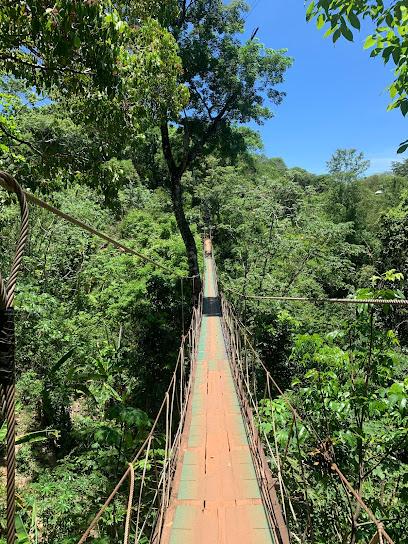
Booty Bar
Discover the vibrant flavors of the Caribbean at Booty Bar, the ultimate bar and grill experience in West End.
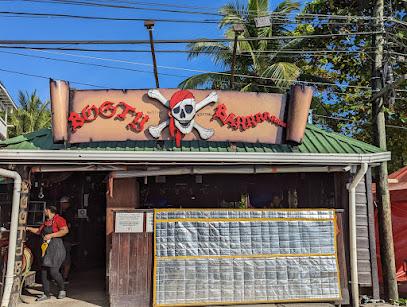
Gumbalimba Park
Explore the enchanting Gumbalimba Park in the Bay Islands, a tropical paradise filled with adventure, wildlife encounters, and stunning natural beauty.
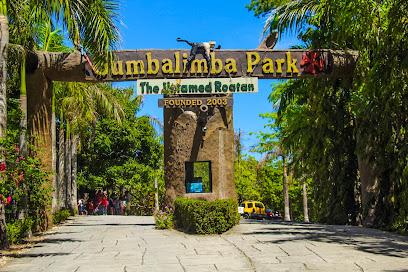
Malecón Guillermo Anderson
Experience the beauty and culture of La Ceiba at Malecón Guillermo Anderson, a vibrant waterfront park perfect for relaxation and exploration.
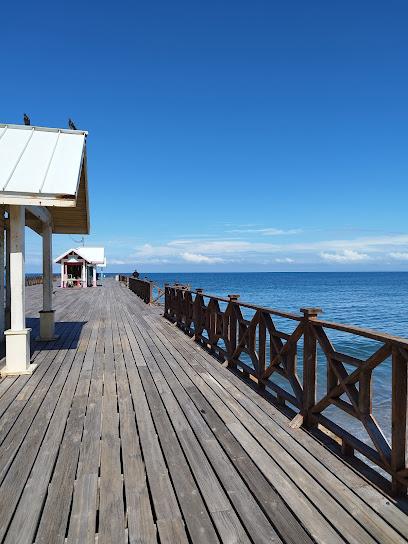
Maya Key
Experience the breathtaking beauty and rich culture of Maya Key, a tropical paradise in the Bay Islands of Honduras, perfect for relaxation and adventure.
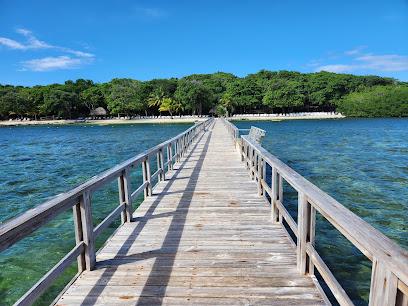
West Bay Beach
Experience the breathtaking beauty and vibrant culture of West Bay Beach, a tropical paradise in the Bay Islands of Honduras.
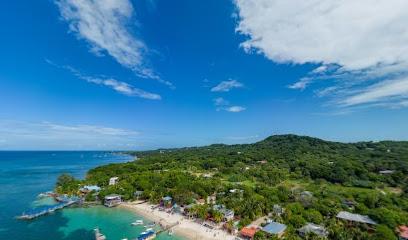
South Shore Canopy Zipline
Soar through the lush canopies of Roatan at the South Shore Canopy Zipline, where adventure meets stunning natural beauty.
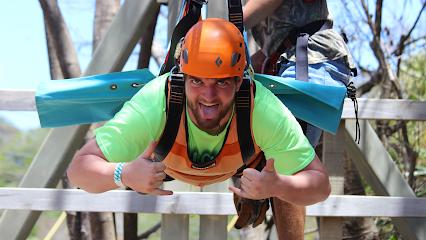
Sol y Mar Beach Club by Mayan Princess
Discover the ultimate beachfront retreat at Sol y Mar Beach Club in Sandy Bay, where exceptional service meets stunning natural beauty in the Bay Islands.
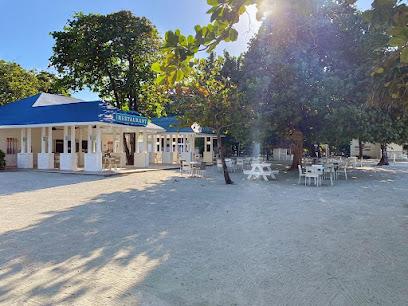
Roatan Rum Company
Explore the rich flavors of Roatan Rum Company, a premier distillery and bakery offering an unforgettable taste of Caribbean craftsmanship and culture.
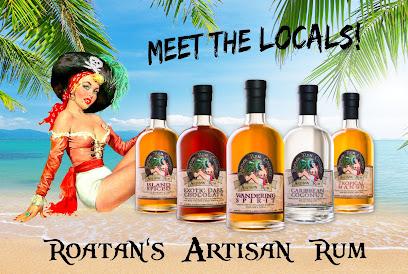
Stone Castle Cameo Factory Institute
Explore the Stone Castle Cameo Factory Institute, a hidden gem in the Bay Islands offering a unique insight into the art of cameo creation.
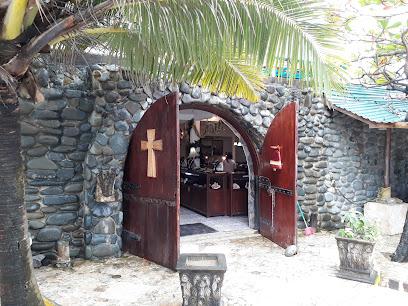
Iguana Research & Breeding Station
Explore the Iguana Research & Breeding Station in Utila for an unforgettable experience in wildlife conservation and education.
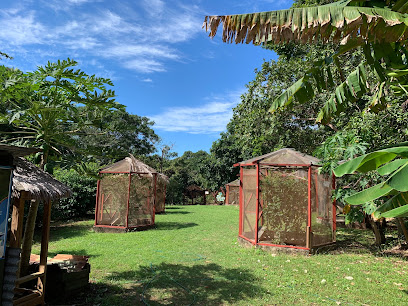
Carambola Gardens
Explore the lush beauty of Carambola Gardens, a tropical paradise in Sandy Bay, ideal for nature lovers and families.
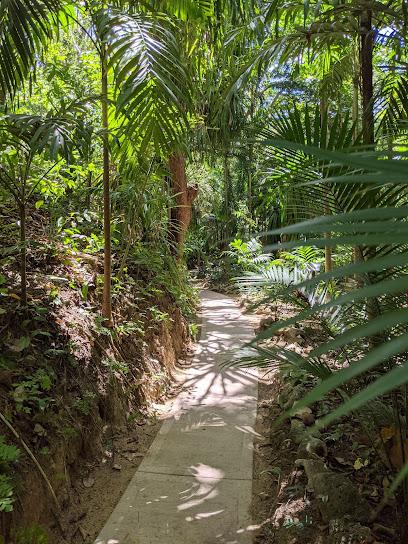
Spa Baan Suerte
Discover ultimate relaxation at Spa Baan Suerte in Sandy Bay, where luxurious treatments rejuvenate your body and soul amidst stunning island scenery.
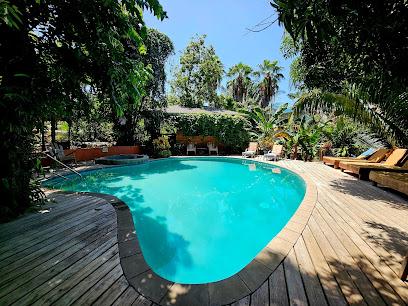
Essential places to dine
Bando Beach
Discover Bando Beach in Utila - your ultimate bar & grill destination for tropical relaxation and unforgettable sunset views.
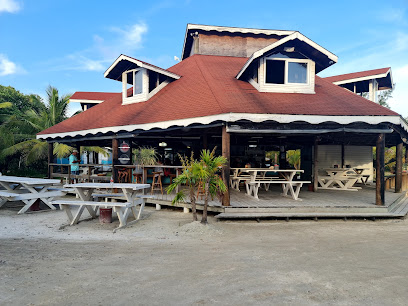
Neptunes at Coral Beach Village
Experience exquisite dining with breathtaking views at Neptunes in Coral Beach Village - where fresh seafood meets Caribbean charm.
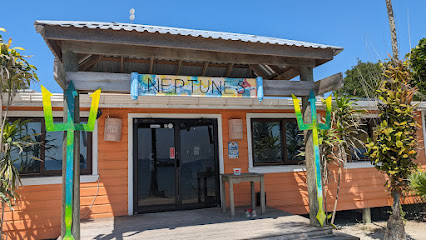
Mango Tango
Experience the vibrant culinary scene at Mango Tango in Sandy Bay, Utila - where Caribbean flavors meet international flair.
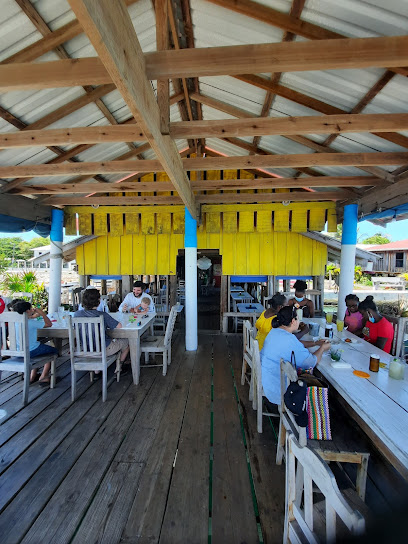
Skid Row Bar & Grill
Experience the vibrant flavors and welcoming atmosphere at Skid Row Bar & Grill in Utila - your perfect culinary getaway.
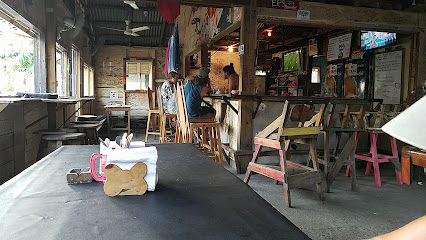
Mermaids
Experience fresh Caribbean flavors at Mermaids in Utila—where every dish tells a story from the Bay Islands.
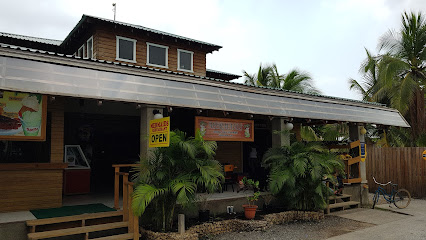
Mister Buddha
Discover the vibrant flavors of Asia at Mister Buddha in Sandy Bay, Utila - where culinary creativity meets stunning ocean views.
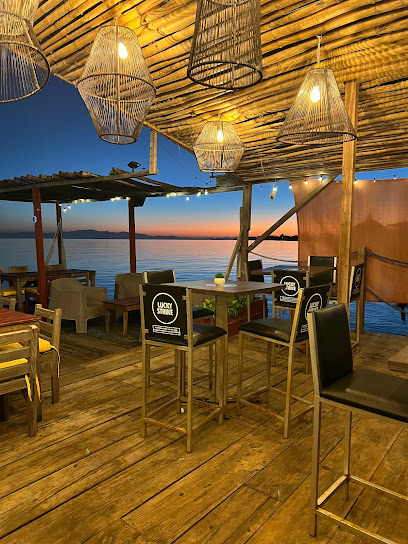
Buccaneers Bar and Grill
Experience delightful Caribbean cuisine at Buccaneers Bar and Grill on Utila Island - where every meal is a celebration of flavor!
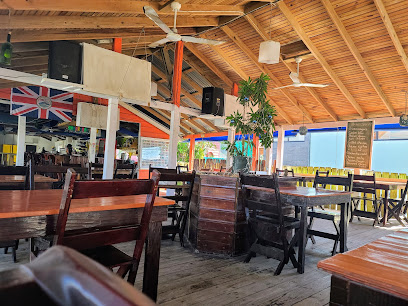
Mango Inn Bar & Grill
Experience vibrant Caribbean cuisine at Mango Inn Bar & Grill, nestled within Mango Inn Hotel in beautiful Utila.
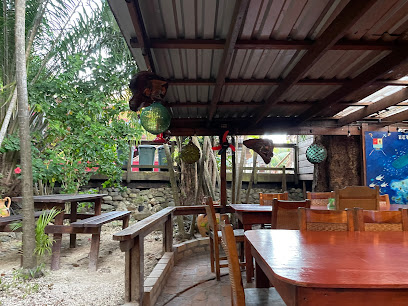
Che Pancho
Experience the vibrant flavors of Utila at Che Pancho - where culinary creativity meets local charm.
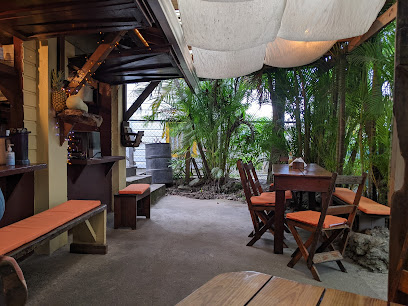
Munchies
Discover local flavors at Munchies in Utila—where Caribbean cuisine meets cozy island vibes.
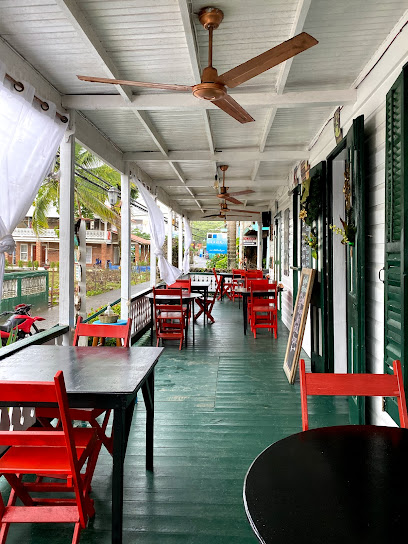
Mario's Place
Discover authentic Honduran cuisine and international dishes at Mario's Place in Utila – where flavor meets island charm.
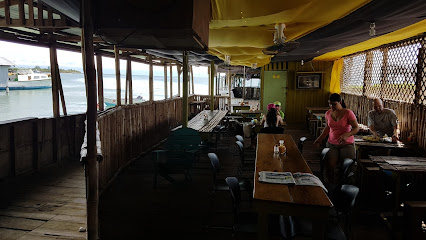
RJ's
Experience the vibrant flavors of Caribbean cuisine at RJ's in Utila, where every meal tells a story of local culture and culinary artistry.
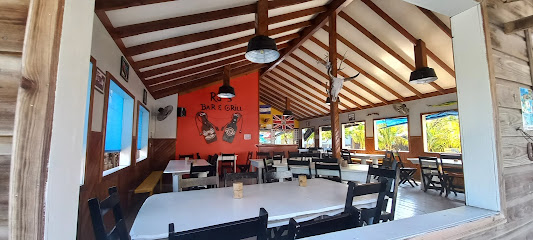
La Casita
Discover authentic Honduran flavors at La Casita in Utila – where every meal tells a story of the Bay Islands.
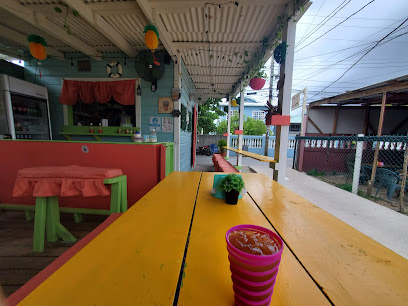
The Point Pool Bar and Grill
Experience exquisite dining at The Point Pool Bar and Grill in Utila, where local flavors meet breathtaking Caribbean views.
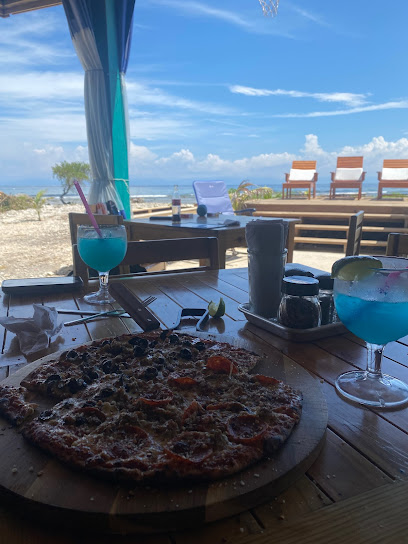
Baleadas Mama Rosa
Experience authentic Honduran cuisine at Baleadas Mama Rosa in Utila - a must-visit destination for food enthusiasts seeking local flavors.
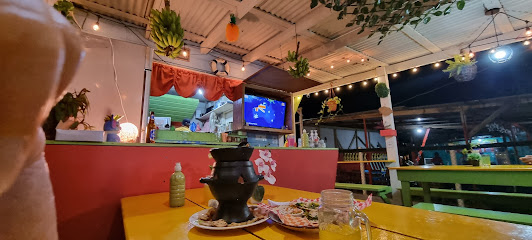
Markets, malls and hidden boutiques
Utila Dive Centre
Explore the vibrant underwater world with Utila Dive Centre, your premier scuba tour agency in the stunning Bay Islands of Honduras.
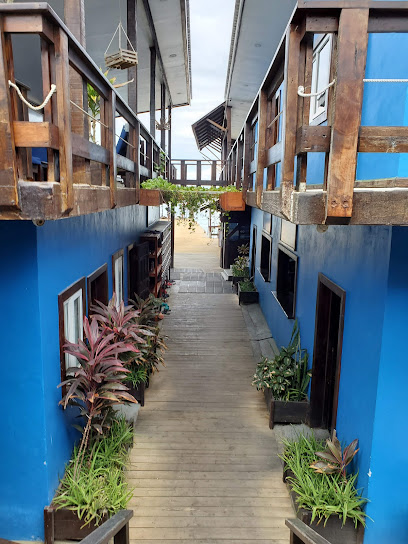
Alton's Dive Center
Discover the vibrant underwater world at Alton's Dive Center, Utila's top dive shop offering exceptional experiences for divers of all levels.
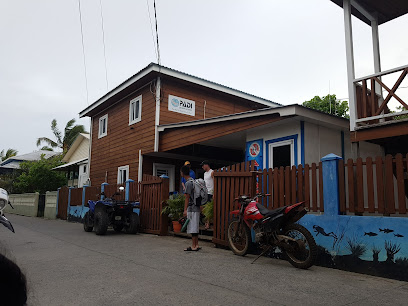
Paradise Divers
Explore the vibrant underwater world with expert guidance at Paradise Divers, Utila's top dive shop for unforgettable diving experiences.
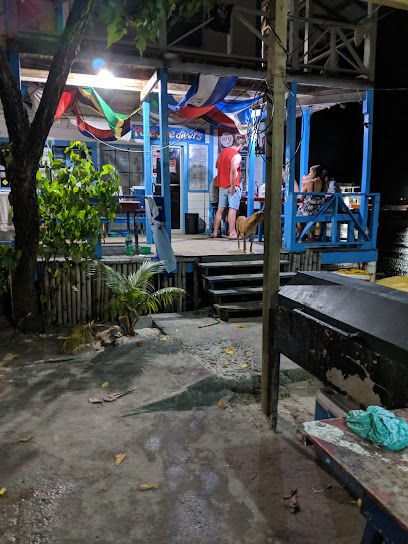
Captain Morgan's Dive Center
Experience the best diving adventures in Utila at Captain Morgan's Dive Center, where safety meets excitement in the Caribbean waters.
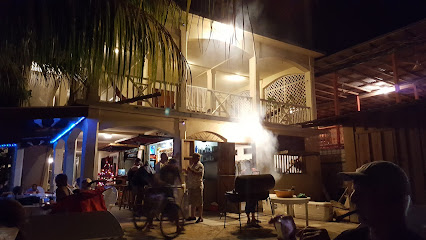
Bush's Supermarket
Explore diverse grocery options at Bush's Supermarket in Utila, where local flavors meet convenience in a vibrant shopping experience.
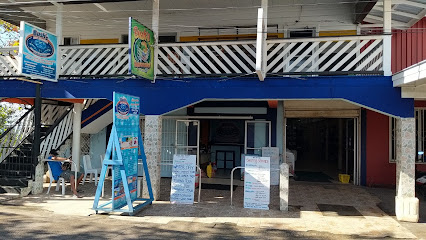
Caribbean Market
Experience the vibrant culture and flavors of Utila at Caribbean Market, your go-to grocery store in the Bay Islands.
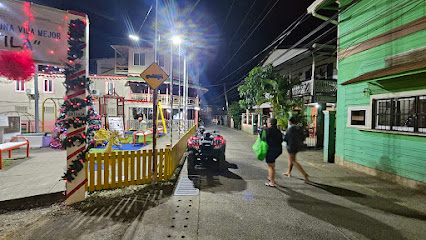
Circle K Utila
Discover convenience at Circle K Utila, your essential stop for snacks, drinks, and travel essentials in the Bay Islands.
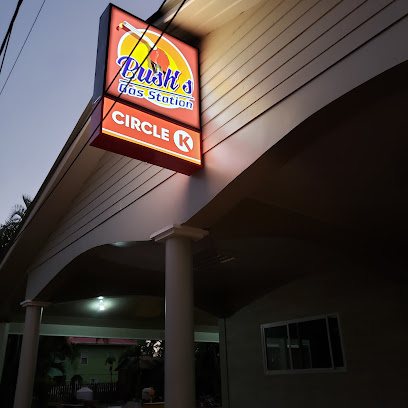
Quest Utila - Board Games & Bookstore
Explore the enchanting Quest Utila, a used bookstore and board game club, where adventure meets relaxation in the heart of Islas de la Bahía.
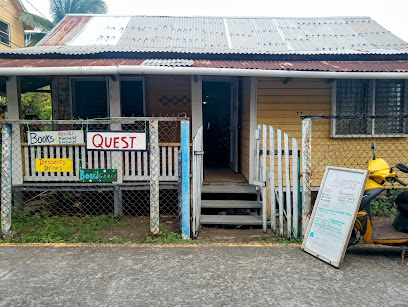
Mares Utila
Explore Mares Utila for a unique shopping experience filled with local crafts and souvenirs from the beautiful Bay Islands.
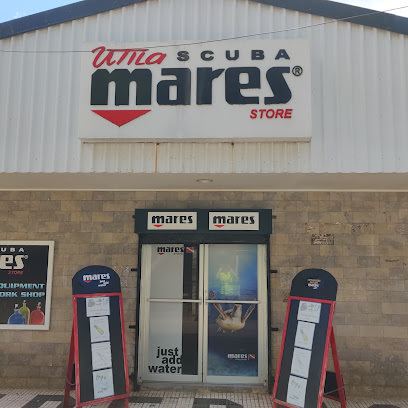
Sheila´s Store
Explore the vibrant convenience of Sheila's Store, your go-to destination for local snacks and essentials in Los Cayitos, Bay Islands.

McCoy Barber Shop
Experience top-notch grooming at McCoy Barber Shop in Utila, Bay Islands - where local charm meets professional service.
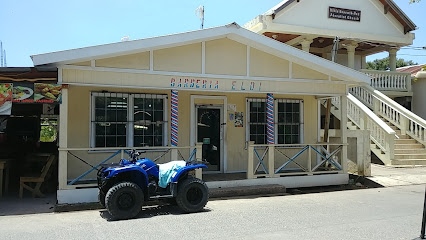
D&G DESPENSA
Explore D&G Despensa in Utila for local flavors, fresh produce, and all your travel essentials in one convenient supermarket.
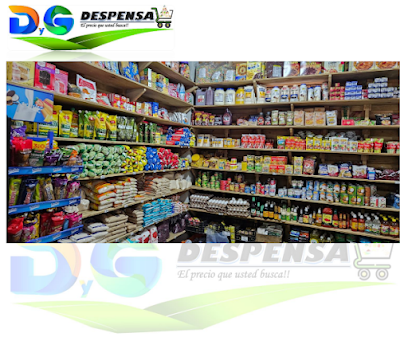
Turquoise Gift Shop
Explore the vibrant Turquoise Gift Shop in Utila for unique souvenirs and local crafts that embody the spirit of the Bay Islands.
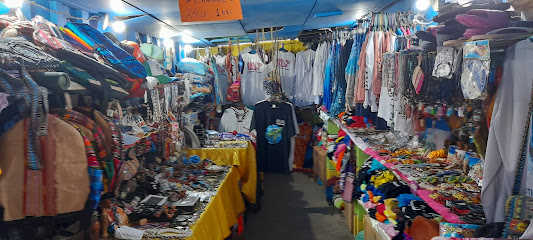
Bay Islands Originals
Discover the essence of Utila at Bay Islands Originals, where local crafts and unique souvenirs await every traveler.
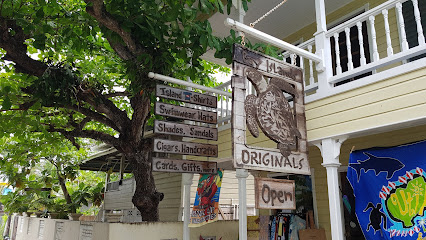
El Bunker Store & Service
Explore El Bunker Store & Service in Utila for unique home goods that embody the island's charm and spirit.
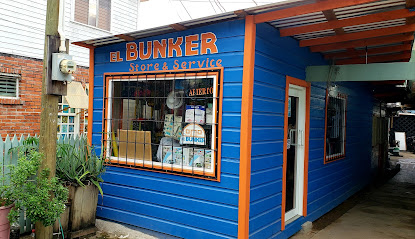
Essential bars & hidden hideouts
Bando Beach
Experience the lively atmosphere of Bando Beach in Utila, where delicious food, refreshing drinks, and stunning ocean views await every visitor.
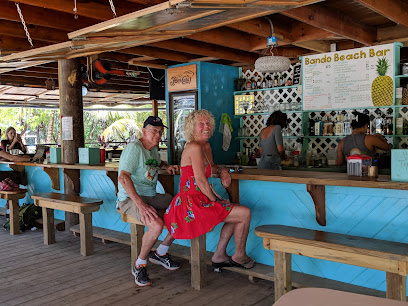
Tranquila Bar
Experience the vibrant nightlife at Tranquila Bar, Utila's favorite spot for affordable drinks, live music, and a welcoming atmosphere.
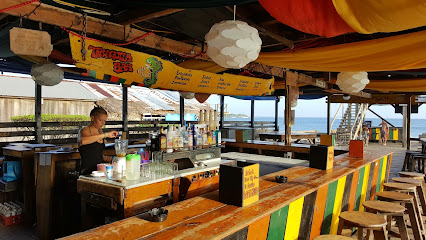
Skid Row Bar & Grill
Discover the vibrant flavors of Utila at Skid Row Bar & Grill, where delicious grilled dishes and refreshing drinks await in a lively atmosphere.
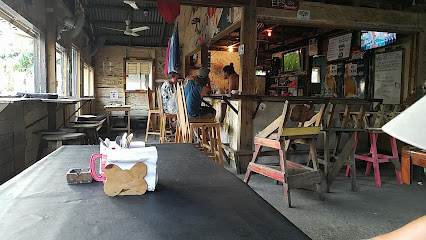
Mister Buddha
Discover the vibrant flavors of Asian fusion cuisine at Mister Buddha, a serene dining oasis in Sandy Bay, Utila, perfect for food lovers.
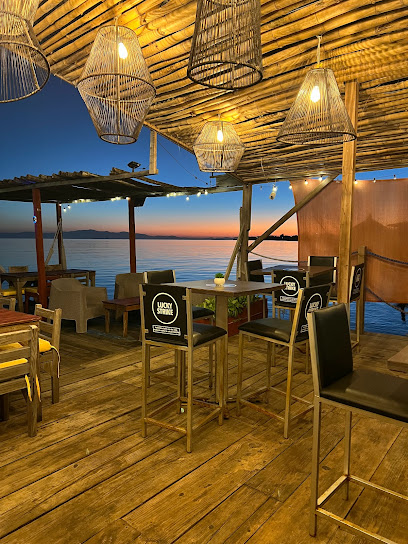
Buccaneers Bar and Grill
Experience the vibrant flavors of the Caribbean at Buccaneers Bar and Grill in Utila, where great food and lively atmosphere await.
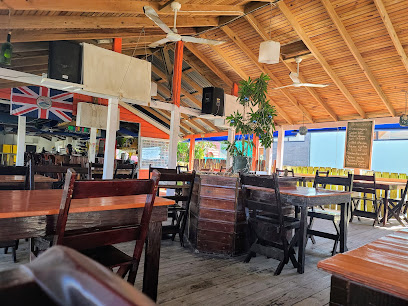
Mango Inn Bar & Grill
Experience the vibrant flavors of the Caribbean at Mango Inn Bar & Grill, a top destination for tourists in Utila's beautiful Bay Islands.
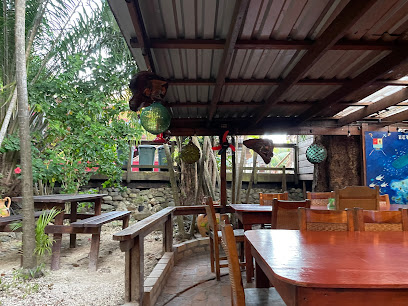
La Cueva
Experience the vibrant nightlife at La Cueva in Utila - where the island's best cocktails and live music create unforgettable moments.
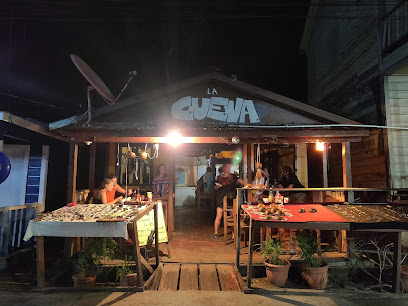
Blue Bayou Beach Bar
Experience the tropical charm of Blue Bayou Beach Bar in Utila, where refreshing cocktails meet stunning ocean views and vibrant live music.
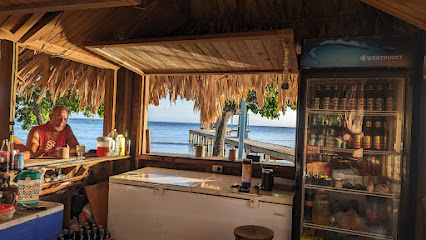
Treetanic Bar
Discover the vibrant atmosphere and stunning views at Treetanic Bar in Utila, your go-to spot for relaxation and entertainment.
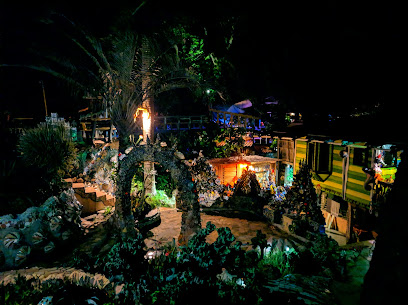
The Point Pool Bar and Grill
Experience the ultimate island vibe at The Point Pool Bar and Grill, where refreshing drinks and delicious food meet stunning tropical views.
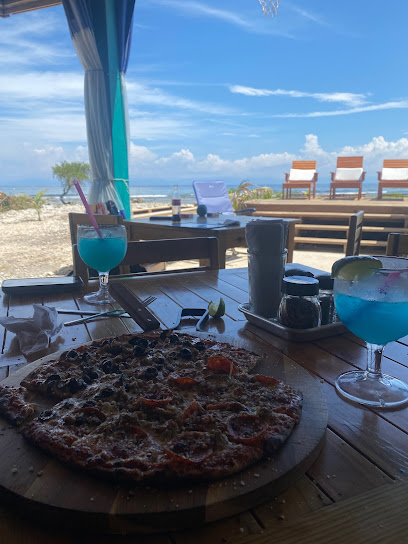
Utila Brewing Company
Experience the vibrant flavors of locally crafted beers at Utila Brewing Company, where island charm meets exceptional brewing.
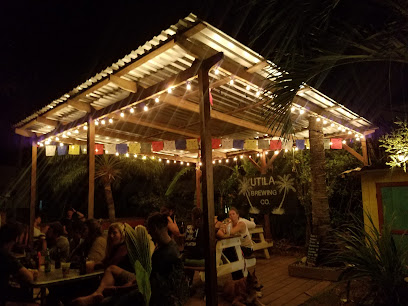
Rockies Volcano Bar
Discover the vibrant Rockies Volcano Bar in Utila, where refreshing drinks, local flavors, and stunning Caribbean views await you.
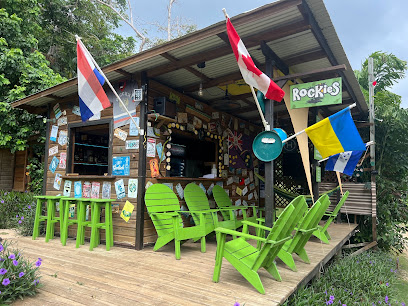
The Dive
Discover the flavors of Utila at The Dive, a premier grill on Holland Beach, where culinary delights meet stunning ocean views.
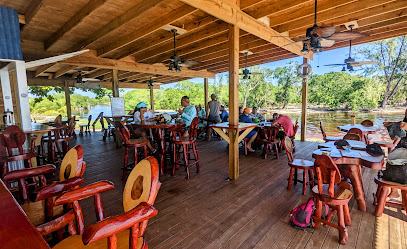
The Champa Bar, Bed and Breakfast
Experience the vibrant atmosphere and delicious grilled cuisine at The Champa Bar, Bed and Breakfast in Utila's stunning Bay Islands.
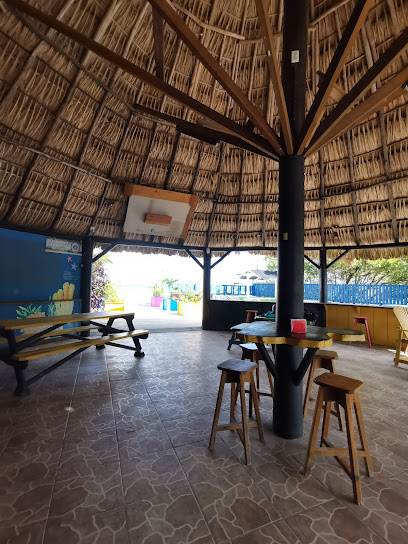
Local Phrases
-
- HelloHola
[oh-lah] - GoodbyeAdiós
[ah-dee-ohs] - YesSí
[see] - NoNo
[noh] - Please/You're welcomePor favor/De nada
[por fah-bor/de nah-dah] - Thank youGracias
[grah-see-ahs] - Excuse me/SorryPerdón/Disculpa
[pair-dohn/dees-cool-pah] - How are you?¿Cómo estás?
[koh-moh ehs-tahs] - Fine. And you?Bien. ¿Y tú?
[byen. ee too] - Do you speak English?¿Hablas inglés?
[ah-blahs een-glehs] - I don't understandNo entiendo
[noh ehn-tee-ehn-doh]
- HelloHola
-
- I'd like to see the menu, pleaseMe gustaría ver el menú, por favor
[may goo-stah-ree-ah behr ehl meh-noo, por fah-bor] - I don't eat meatNo como carne
[noh koh-moh kar-neh] - Cheers!¡Salud!
[sah-lood] - I would like to pay, pleaseMe gustaría pagar, por favor
[may goo-stah-ree-ah pah-gar, por fah-bor]
- I'd like to see the menu, pleaseMe gustaría ver el menú, por favor
-
- Help!¡Ayuda!
[ah-yoo-dah] - Go away!¡Vete!
[veh-teh] - Call the Police!¡Llama a la Policía!
[yah-mah ah lah poh-lee-see-ah] - Call a doctor!¡Llama a un doctor!
[yah-mah ah oon dohk-tohr] - I'm lostEstoy perdido/a
[ehs-toy pair-dee-doh/ah] - I'm illEstoy enfermo/a
[ehs-toy ehn-fehr-moh/ah]
- Help!¡Ayuda!
-
- I'd like to buy...Me gustaría comprar...
[may goo-stah-ree-ah kohm-prar] - I'm just lookingSolo estoy mirando
[soh-loh ehs-toy mee-rahn-doh] - How much is it?¿Cuánto cuesta?
[kwan-toh kwehs-tah] - That's too expensiveEso es demasiado caro
[eh-soh ehs deh-mah-see-ah-doh kah-roh] - Can you lower the price?¿Puedes bajar el precio?
[pweh-dehs bah-har ehl pree-syoh]
- I'd like to buy...Me gustaría comprar...
-
- What time is it?¿Qué hora es?
[keh oh-rah ehs] - It's one o'clockEs la una en punto
[ehs lah oo-nah ehn poon-toh] - Half past (10)Las diez y media
[lahs dyehs ee meed-yah] - MorningMañana
[mah-nyah-nah] - AfternoonTarde
[tahr-deh] - EveningNoche
[noh-cheh] - YesterdayAyer
[ah-yehr] - TodayHoy
[oy] - TomorrowMañana
[mah-nyah-nah] - 1Uno
[oo-noh] - 2Dos
[dohs] - 3Tres
[trehs] - 4Cuatro
[kwa-troh] - 5Cinco
[seen-koh] - 6Seis
[says] - 7Siete
[syeh-teh] - 8Ocho
[oh-choh] - 9Nueve
[nweh-veh] - 10Diez
[dyehs]
- What time is it?¿Qué hora es?
-
- Where's a/the...?¿Dónde está...?
[dohn-deh ehs-tah] - What's the address?¿Cuál es la dirección?
[kwal ehs lah dee-rek-syohn] - Can you show me (on the map)?¿Puedes mostrarme (en el mapa)?
[pweh-dehs mohs-trar-meh (ehn ehl mah-pah)] - When's the next (bus)?¿Cuándo es el próximo (autobús)?
[kwan-doh ehs ehl proh-ksee-moh (ow-toh-boos)] - A ticket (to ....)Un boleto (a ....)
[oon boh-leh-toh (ah)]
- Where's a/the...?¿Dónde está...?
History of Utila
-
Before the arrival of Europeans, Utila was inhabited by the Paya, or Pech, indigenous people. They lived off the island’s natural resources, engaging in fishing, farming, and trading with neighboring regions. Evidence of their existence includes artifacts such as pottery and tools that have been discovered on the island.
-
Christopher Columbus first sighted the Bay Islands, including Utila, during his fourth and final voyage to the New World in 1502. Although Columbus himself did not set foot on Utila, his encounter initiated European interest in the region. His voyages marked the beginning of Spanish influence over the Bay Islands.
-
During the 17th century, Utila became a haven for pirates and privateers. The island's strategic location and natural harbors provided an excellent base for these seafarers to launch raids on Spanish galleons laden with treasure. Famous pirates like Henry Morgan were known to frequent the waters around Utila.
-
Throughout the 18th century, the Bay Islands were a point of contention between the British and Spanish empires. The British briefly controlled Utila, using it as a naval base for their operations in the Caribbean. However, the Treaty of Paris in 1783 eventually restored Spanish control over the region.
-
In the early 19th century, Utila became a permanent British settlement. British settlers, including descendants of the Bay Islands’ original indigenous inhabitants and freed African slaves, established plantations and small communities. The British influence is still evident today in the island’s culture, language, and architecture.
-
In 1859, the British ceded the Bay Islands, including Utila, to Honduras through the Wyke-Cruz Treaty. This event marked the beginning of Utila’s integration into the Honduran nation. Despite the change in sovereignty, the island retained much of its British cultural heritage.
-
During the late 19th and early 20th centuries, Utila’s economy was primarily driven by the coconut and banana industries. These plantations provided employment and contributed to the island’s modest prosperity. Over time, fishing also became a significant economic activity, with lobstering and conch fishing being particularly important.
-
In the latter half of the 20th century, Utila emerged as a popular destination for backpackers and scuba diving enthusiasts. The island’s stunning coral reefs, part of the Mesoamerican Barrier Reef System, attract visitors from around the world. Tourism has since become the mainstay of Utila’s economy, with numerous dive shops, resorts, and restaurants catering to international travelers.
-
Utila’s diverse cultural heritage is celebrated through various festivals and events. The island’s annual Carnival and Sunjam music festival highlight its vibrant community spirit and draw visitors eager to partake in the festivities. Traditional Garifuna music, dance, and cuisine are integral parts of Utila’s cultural landscape.
Utila Essentials
-
Utila is one of the Bay Islands of Honduras. The most common way to reach Utila is via a short flight from Tegucigalpa or San Pedro Sula to Roatán, followed by a ferry to Utila. Alternatively, travelers can take a direct ferry from La Ceiba on the mainland. Ferries run twice daily, and the journey takes approximately 1 hour. There are also occasional direct flights from La Ceiba to Utila, which can be a quicker but more expensive option.
-
Utila is a small island, and most places of interest are within walking distance. Bicycles, scooters, and golf carts are popular means of transportation and can be rented easily. Taxis are also available, but they are usually not necessary given the island's size. For water-based transportation, water taxis can take you to nearby cays and dive sites.
-
The official currency in Utila is the Honduran Lempira (HNL). However, US dollars are widely accepted, especially in tourist areas. Credit cards are accepted in many hotels, restaurants, and dive shops, but it's a good idea to carry cash for smaller establishments and tips. ATMs are available on the island, but they may occasionally run out of cash, so it's advisable to withdraw enough money before arriving.
-
Utila is generally safe for tourists, but like any travel destination, it’s important to exercise caution. Avoid walking alone at night in secluded areas and keep an eye on your belongings. Petty theft can occur, so use hotel safes for valuables. Areas around the harbor and the main strip can get busy, so stay vigilant.
-
In case of an emergency, dial 911 for immediate assistance. Utila has a small medical clinic for minor emergencies, but serious medical conditions may require evacuation to the mainland or to Roatán, where there are more comprehensive medical facilities. Ensure you have travel insurance that covers medical emergencies and evacuation. Pharmacies are available for over-the-counter medications.
-
Fashion: Do wear lightweight and breathable clothing suitable for a tropical climate. Avoid overly revealing swimwear when away from the beach. Religion: Do respect local religious practices. Although Utila is not particularly conservative, it's still polite to dress modestly when visiting churches. Public Transport: Do use bicycles or walk, as these are the most common forms of transport. Don't expect extensive public transportation networks. Greetings: Do greet people with a friendly 'Hola' or 'Buenas.' A handshake is customary. Eating & Drinking: Do try local seafood and traditional dishes. Don't drink tap water; stick to bottled or purified water.
-
To experience Utila like a local, visit the local eateries and try 'baleadas,' a traditional Honduran dish. Engage with the locals, especially the dive instructors, who often have fascinating stories and tips about the island. Don't miss attending local festivals and events for a deeper cultural experience. For the best snorkeling and diving spots, ask locals for recommendations beyond the usual tourist sites.
Nearby Cities to Utila
-
Things To Do in La Ceiba
-
Things To Do in Roatán
-
Things To Do in Puerto Cortés
-
Things To Do in San Pedro Sula
-
Things To Do in Placencia
-
Things To Do in Hopkins
-
Things To Do in Dangriga
-
Things To Do in Puerto Barrios
-
Things To Do in Livingston
-
Things To Do in Punta Gorda
-
Things To Do in Belize City
-
Things To Do in Rio Dulce
-
Things To Do in Caye Caulker
-
Things To Do in Tegucigalpa
-
Things To Do in San Pedro






